A Chart is Worth 96,000 Collisions
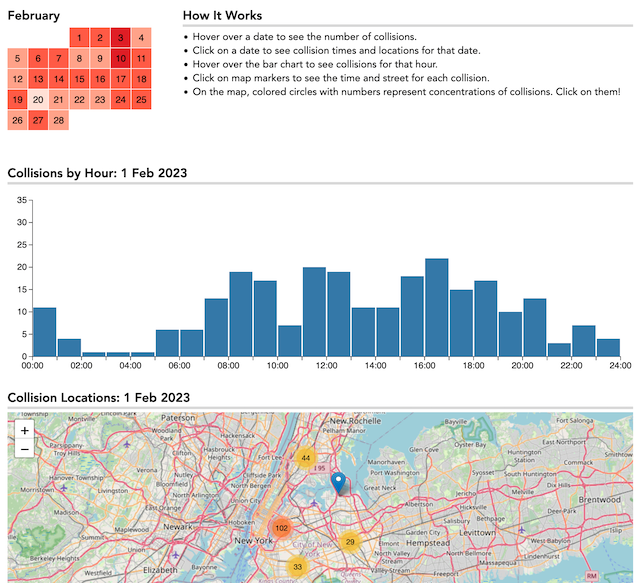
Gigabyte upon gigabyte of data is collected every day in our high-tech society. Unfortunately it's virtually useless in its raw form; it needs to be analyzed for patterns and/or "exceptions" to patterns. When studying the over 96,000 automobile collisions that took place in New York City during an entire year, data visualization can help.
Scraping for Real Facts
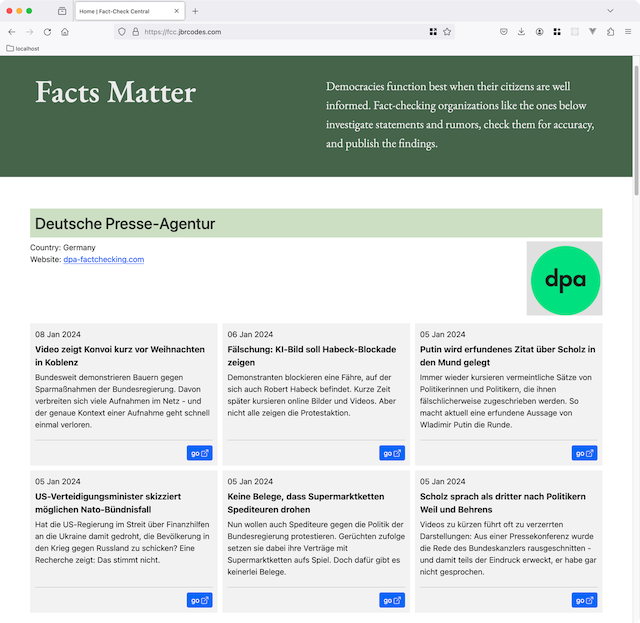
With the meteoric rise of hoaxes, rumors and "alternative facts," it's more important than ever to find reliable sources of information (i.e. real facts). One reliable source is fact-checking websites. But I don't want to have to check each site multiple times a week, so I use a technique called web scraping to conveniently send the most recent updates from multiple fact-checking websites to my inbox. Oh, and BTW, it's even possible to web scrape in a way that's legal and ethical.
WordPress, "Decapitated"
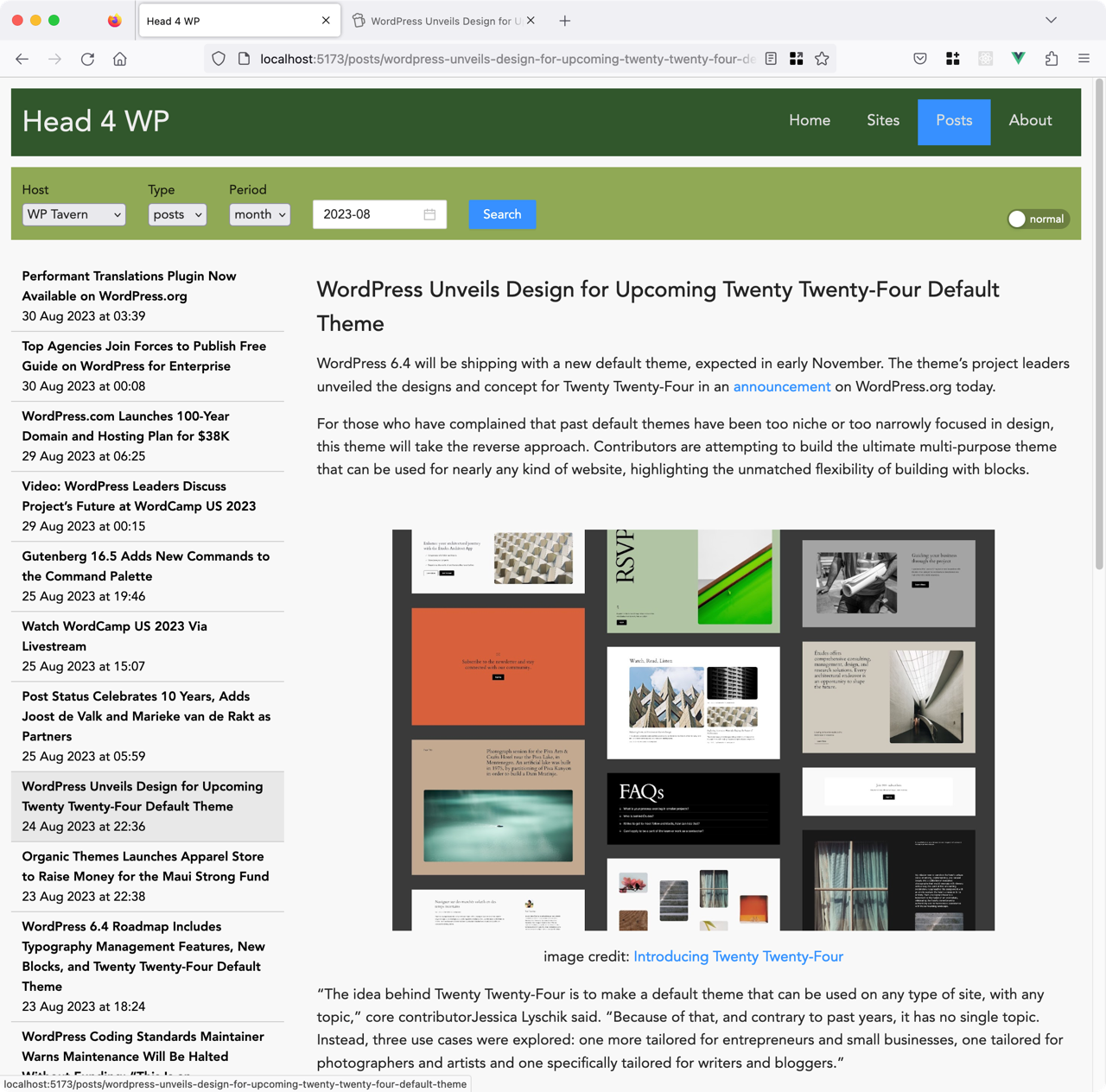
Most WordPress websites are monolithic. That is, when we request a web page, a complete HTML page (with CSS and JavaScript) is sent to our web browser, using the style/theme of the site. However it's also possible to only request the content from a WordPress site, and to style it ourselves. To do that, we need our own client, and our client only requests content from a headless WordPress server.
A Day at the (Bar Chart) Races
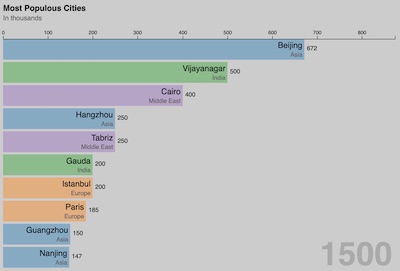
Sometime back in 2019 someone coined the term bar chart race. It's essentially an animated bar chart, showing how the "top ten" (for example) of something varies over time. Some people say it's a great way to visualize data. Others say it's gratuitous animation for data that can be better visualized in a line graph (for example). I was intrigued. So I decided to investigate further. Here is my report.
Hybrid Learning with MOOC and Mentor
The rise in popularity and availability of online educational tools like MOOCs gives us even more options for learning. MOOCs are not an educational "silver bullet," they are not a "one size fits all" solution for everyone, but for people who cannot attend classes due to time conflicts or distance from learning centers, MOOCs are a great option. Still, there are limits to technology, and sometimes we need what technology simply can't give us: the human dimension.
Clouds and Containers and Swarms! Oh My!
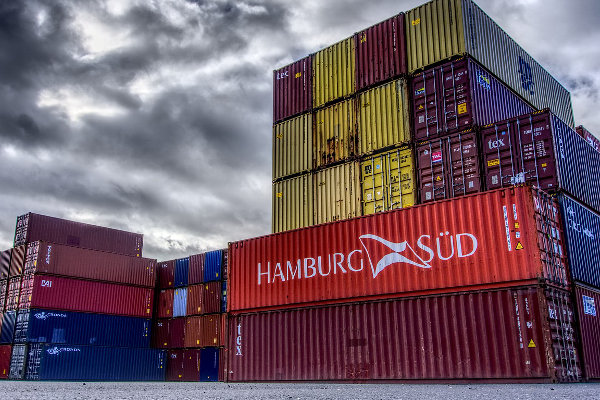
If I manage a restaurant, I schedule enough employees to comfortably handle the average number of customers. For peak periods, or when I have a special catering event, I bring in extra employees to handle those exceptional situations. Cloud computing works much the same way.
Congress Navigator: There's an App for That
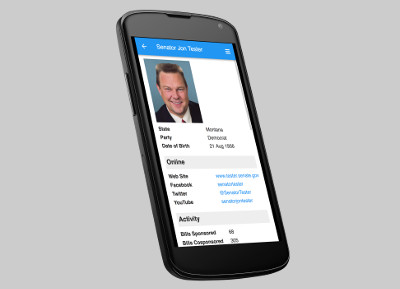
We're hooked on the Internet and uninterrupted access to all of our data that lives in the cloud. But many of us don't take our laptops with us everywhere (not to mention our desktops). In fact, some people use smartphones as their primary Internet device. Responsive websites and dedicated smartphone apps are two ways to make data in the cloud accessible to people on the go.
In Praise of Static Websites
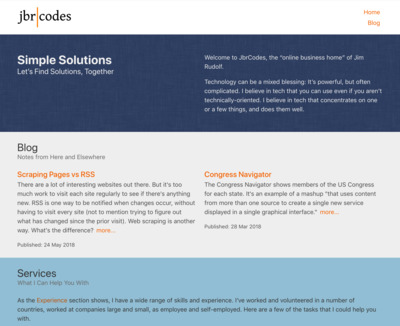
In the beginning, there were static web pages. We had to be tech savvy and know HTML to publish anything. Then came Content Management Systems (CMSs), which not only allowed non-technical users to publish without knowing HTML, but also made web pages dynamic and interactive. Now, static web pages seem to be making a bit of a comeback. What's up with that?
Scraping Pages vs RSS
There are a lot of interesting websites out there. But it's too much work to visit each site regularly to see if there's anything new. RSS is one way to be notified when changes occur, without having to visit every site (not to mention trying to figure out what has changed since the prior visit). Web scraping is another way. What's the difference?
Congress Navigator
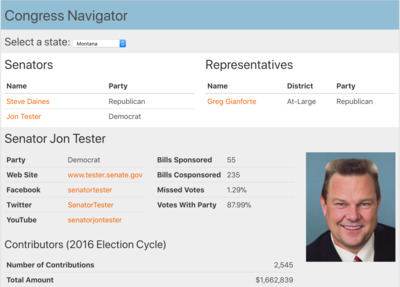
The Congress Navigator shows members of the US Congress for each state. It's an example of a mashup "that uses content from more than one source to create a single new service displayed in a single graphical interface."
Choropleth Maps

Choropleth maps show areas in different shades and/or colors according to statistical differences between areas. I wanted to learn more about how to make them so I did the following exercise.